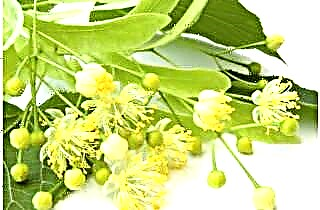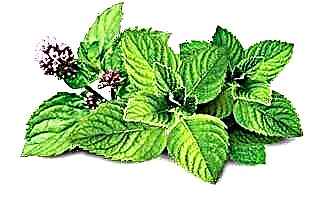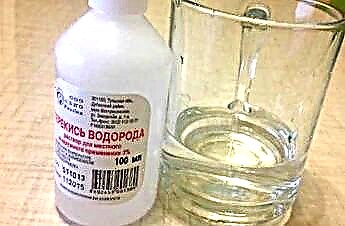When people are confronted with respiratory diseases, they start taking medications to improve their well-being. You can cure the disease with the help of natural plant substances. To understand what herbs to drink when coughing, you need to find out the nature of this breathing disorder. Spasm of the bronchi can be caused by various ailments, and they need to be treated using different means.
What types of cough do herbs treat?
 A cough can be caused by a variety of reasons. Bronchospasm is a natural reaction of the body that helps clear foreign bodies from the bronchi. Diseases can be viral and bacterial, infections penetrate the mucous membranes, irritating the ciliated epithelium of the respiratory tract, which causes coughing attacks of a different nature. Medicinal plants will help alleviate the patient's condition with such diseases:
A cough can be caused by a variety of reasons. Bronchospasm is a natural reaction of the body that helps clear foreign bodies from the bronchi. Diseases can be viral and bacterial, infections penetrate the mucous membranes, irritating the ciliated epithelium of the respiratory tract, which causes coughing attacks of a different nature. Medicinal plants will help alleviate the patient's condition with such diseases:
- whooping cough;
- pulmonary tuberculosis;
- bronchitis;
- bronchial asthma;
- laryngitis;
- allergy;
- pleurisy;
- pneumonia;
- lobar pneumonia;
- respiratory tract irritation in smokers.
Each of these diseases is characterized by bronchospasm with or without sputum production. To understand which herbs help with cough, you need to find out whether it brings relief or not.
If phlegm is not released during spasms, chest pain or sore throat is felt, then we are talking about a dry, unproductive cough.
If mucus is secreted, then the bronchi are cleared of pathogenic organisms, and recovery is just around the corner. It is possible to improve the patient's condition with any illness, the main thing is to choose the right medication for this.
Varieties of herbs for therapy
Herbal cough treatment has its own characteristics. Each plant has unique properties and contains components that have a different effect on the body. It is very important to take these nuances into account so as not to harm your health, especially if you decide to use fees.
In one broth, you cannot mix components that give an antitussive and expectorant effect, this can lead to stagnation of mucus in the bronchi. You also need to remember that herbs can drown out each other's action if there are too many of them in one mixture.
Consider which types of cough will benefit from different remedies.
 Eliminate dry cough. For this, herbs are suitable that thin out phlegm, make it more productive, and also soothe mucous membranes and envelop them with a protective film. In this case, we use the following plants:
Eliminate dry cough. For this, herbs are suitable that thin out phlegm, make it more productive, and also soothe mucous membranes and envelop them with a protective film. In this case, we use the following plants:
- plantain - disinfects and softens mucous membranes, fights viruses and bacteria, relieves pain syndrome, thinns phlegm;
- chamomile - soothes irritation, is a natural antiseptic;
- rosemary - relieves spasm and irritation, expands the bronchi, increases the secretion of sputum;
- cough thyme - has an antiseptic and sedative effect, promotes rapid healing of mucous membranes, gently removes phlegm from the respiratory tract;
- parmelia - helps to dilute mucus and its discharge, relieves irritation and pain, soothes severe coughing attacks;
 coltsfoot - increases the secretion of the mucous membranes of the respiratory tract, gently removes the resulting phlegm, relieves inflammation;
coltsfoot - increases the secretion of the mucous membranes of the respiratory tract, gently removes the resulting phlegm, relieves inflammation;- mullein - thinns phlegm, is a natural antiseptic, disinfects and fights against pathogens;
- clover - soothes irritated airways, increases the volume and amount of phlegm;
- linden blossom - disinfects and relieves pain, gently envelops mucous membranes, promotes the formation of phlegm and its excretion.
- Get rid of a wet cough. If the spasm of the airways is causing mucus, this is a good sign. Together with sputum, pathogenic viruses and bacteria are removed from the bronchi. To enhance the effectiveness of cleansing the respiratory tract, the following herbs for coughs are suitable:
- inflorescences of lungwort - relieve inflammation and fight bacteria, remove mucus from the bronchi;
- sage leaves - a natural antiseptic and an excellent anti-inflammatory agent;
 mint - relieves irritation and promotes productive coughing;
mint - relieves irritation and promotes productive coughing;- dill seeds - eliminate pathogenic bacteria, cleanse the respiratory tract;
- fennel fruits - disinfect, fight bacteria and viruses, promote better mucus removal;
- thyme - promotes expectoration, natural antiseptic;
- comfrey - soothes and softens mucous membranes, improves coughing;
- eucalyptus - contains essential oils that soothe mucous membranes and improve phlegm discharge.
- We ease the patient's condition with whooping cough. Whooping cough is a serious condition in which the patient experiences not only excruciating bronchospasm, but also chest pain. In order to relieve symptoms and speed up recovery, you need to use the following medicinal herbs for coughs:
- oregano;
- wild rosemary;
- angelica root;
- calamus;
- caraway;
- St. John's wort.
 Means for eliminating symptoms of bronchitis and pneumonia. These diseases cause severe inflammation of the airways, therefore, herbs should be used that gently eliminate pathogens and soothe mucous membranes. The following set of plants helps with cough:
Means for eliminating symptoms of bronchitis and pneumonia. These diseases cause severe inflammation of the airways, therefore, herbs should be used that gently eliminate pathogens and soothe mucous membranes. The following set of plants helps with cough:
- pine buds - contain a large amount of tannins and phytoncides;
- Willow bark is an effective antiseptic and pain reliever.
- We fight attacks of coughing. Often, patients are faced with a severe paroxysmal cough, most often it appears at night. To eliminate bronchospasm, you need to use plants that soothe not only mucous membranes, but also the nervous system. These properties are possessed by such herbs:
- fireweed;
- chamomile;
- motherwort;
- valerian.
Cough suppressant recipes
With bacterial and viral diseases of the respiratory tract, you can use cough decoctions. They are prepared from mixtures of medicinal herbs that complement each other perfectly. Each component enhances the action of the other components, which gives an excellent effect of the treatment. Consider the most popular drug recipes.
 Collection for dry cough No. 1. We take dried ingredients in equal parts: coltsfoot, thyme and elecampane. In total, you should get 1 tablespoon of raw materials. We put it in a glass or a cup and fill it with boiling water, leave for 20-30 minutes, drink a third of the glass 2 times a day before meals.
Collection for dry cough No. 1. We take dried ingredients in equal parts: coltsfoot, thyme and elecampane. In total, you should get 1 tablespoon of raw materials. We put it in a glass or a cup and fill it with boiling water, leave for 20-30 minutes, drink a third of the glass 2 times a day before meals.- Collection for dry cough No. 2. We need a teaspoon each of these ingredients: thyme leaves, coltsfoot, hyssop, mullein and mallow petals. We mix the herbs, put in a liter jar, pour 700 ml of boiling water and leave for 40 minutes. After that, we filter the liquid and drink an infusion of 150 g three times a day before a meal.
- Remedy for a wet cough. An effective decoction is obtained from wild rosemary. We take a tablespoon of dried raw materials, fill it with a glass of boiled water and let it brew. We filter the finished medicine and take 2 tablespoons in the morning and evening.
Precautionary measures
 The herbal collection will help the patient only if it is correctly selected. It should also be borne in mind that potent natural substances can have a powerful effect on the body, which is extremely dangerous for some diseases. Carefully study the composition of the funds and their biological properties to avoid complications.
The herbal collection will help the patient only if it is correctly selected. It should also be borne in mind that potent natural substances can have a powerful effect on the body, which is extremely dangerous for some diseases. Carefully study the composition of the funds and their biological properties to avoid complications.
Children, pregnant and lactating women are also at risk. For them, any means are selected especially carefully. Before starting therapy, a test is made for a tendency to allergic reactions, the dosage is calculated individually in each case.
To avoid side effects, you should consult a doctor before taking any herbs.
Let's summarize
Medicinal herbs really have a positive effect on the body and help heal coughs caused by respiratory diseases. However, it should be borne in mind that different means are required to eliminate each type of bronchospasm. In order not to harm your health, alternative methods of treatment must be combined with drug therapy.

 Eliminate dry cough. For this, herbs are suitable that thin out phlegm, make it more productive, and also soothe mucous membranes and envelop them with a protective film. In this case, we use the following plants:
Eliminate dry cough. For this, herbs are suitable that thin out phlegm, make it more productive, and also soothe mucous membranes and envelop them with a protective film. In this case, we use the following plants: coltsfoot - increases the secretion of the mucous membranes of the respiratory tract, gently removes the resulting phlegm, relieves inflammation;
coltsfoot - increases the secretion of the mucous membranes of the respiratory tract, gently removes the resulting phlegm, relieves inflammation; mint - relieves irritation and promotes productive coughing;
mint - relieves irritation and promotes productive coughing; Means for eliminating symptoms of bronchitis and pneumonia. These diseases cause severe inflammation of the airways, therefore, herbs should be used that gently eliminate pathogens and soothe mucous membranes. The following set of plants helps with cough:
Means for eliminating symptoms of bronchitis and pneumonia. These diseases cause severe inflammation of the airways, therefore, herbs should be used that gently eliminate pathogens and soothe mucous membranes. The following set of plants helps with cough: Collection for dry cough No. 1. We take dried ingredients in equal parts: coltsfoot, thyme and elecampane. In total, you should get 1 tablespoon of raw materials. We put it in a glass or a cup and fill it with boiling water, leave for 20-30 minutes, drink a third of the glass 2 times a day before meals.
Collection for dry cough No. 1. We take dried ingredients in equal parts: coltsfoot, thyme and elecampane. In total, you should get 1 tablespoon of raw materials. We put it in a glass or a cup and fill it with boiling water, leave for 20-30 minutes, drink a third of the glass 2 times a day before meals.

